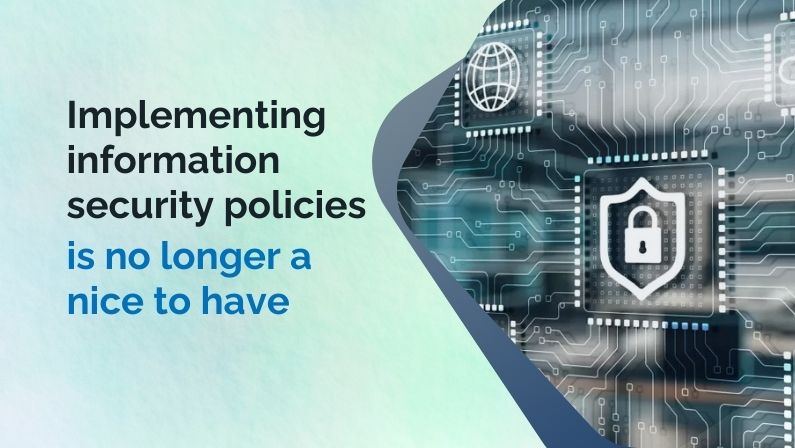Implementing information security policies is no longer a nice-to-have in today’s business environment, where data breaches and cyber threats are increasingly common. These policies serve as a framework that guides the management, staff, and users in securing the organization’s information assets. Key merits of implementing such policies include:
Protection of Sensitive Data:
Information security policies ensure the confidentiality, integrity, and availability of sensitive data. By establishing rules for data handling, storage, and transmission, these policies protect against unauthorized access and loss.
Regulatory Compliance:
Many industries are subject to regulations that require the protection of sensitive data. For example, healthcare organizations must comply with HIPAA, and financial institutions with GLBA. Information security policies help in meeting these legal and regulatory requirements.
Risk Management:
These policies enable organizations to identify, assess, and mitigate risks associated with cyber threats. By establishing a risk management framework, organizations can prioritize their security measures according to the level of risk.
Prevention of Data Breaches and Cyber Attacks:
A well-implemented information security policy can significantly reduce the likelihood of data breaches and cyber-attacks. These policies include guidelines for secure system configurations, access controls, and the use of firewalls and antivirus software.
Business Continuity and Disaster Recovery:
Information security policies often include plans for business continuity and disaster recovery. This ensures that the organization can continue its operations and recover quickly in the event of a security incident.
Enhanced Customer Trust:
Customers are increasingly concerned about the security of their personal information. Organizations with robust information security policies can build and maintain customer trust by demonstrating their commitment to protecting client data.
Cost Savings:
While implementing these policies requires an upfront investment, they can save organizations a significant amount of money in the long run by preventing costly data breaches and non-compliance penalties.
The implementation of information security policies is not just a best practice but a necessity for organizations seeking to protect their information assets in a landscape marked by escalating cyber threats and stringent regulatory demands. These policies provide a strategic direction and specific guidelines to safeguard sensitive information, maintain compliance, manage risks, and build a culture of security awareness.





